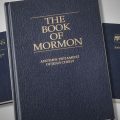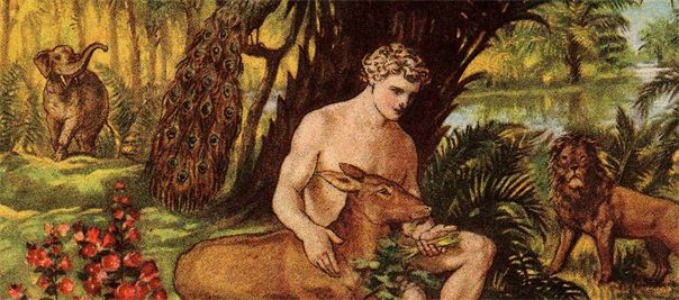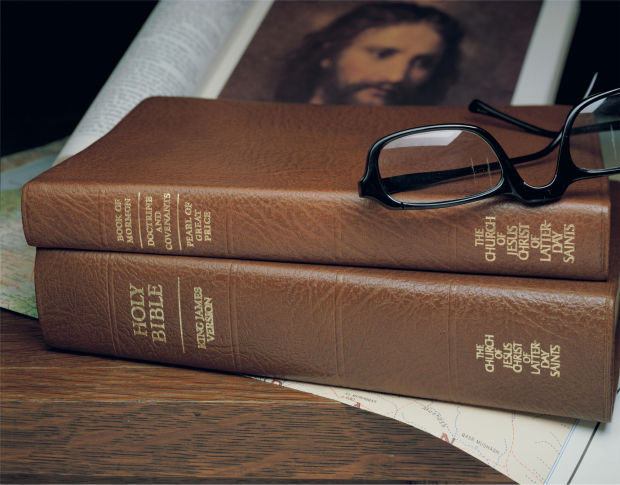Question
Gramps,
What is the definition of the Heavenly Gift spoken of throughout the scriptures? I am especially interested in knowing what it means to be ‘partakers of the Heavenly Gift’ spoken of in 4th Nephi. Thank you!
JS
Answer
Dear JS,
The “heavenly gift” spoken of in the scriptures is “the words of eternal life” delivered by the Savior to a person and perhaps even to a congregation. “[E]ternal life, … is the greatest of all the gifts of God,” (D&C 14:7) so when a person has placed himself or herself on the path of perfection and been sanctified, they may be blessed with this gift and “enjoy the words of eternal life in this world, and eternal life in the world to come, even immortal glory.” (Moses 6:59). It is related to receiving the Second Comforter and other similar phrases, and thus should not be spoken of lightly.
After the Lehites had been purged of their wickedest people, and after the Lord appeared and ministered to the survivors, the New World disciples labored to build a unity among the saints. You’ll recall that contention was a part of their culture that carried over even into the new church even after receiving Christ’s personal ministry (3 Nephi 11:29, 27:3). The disciples labored for over a year (and possibly three (4 Nephi 1:1-2)) to infuse a Zion spirit into the congregations. The record testifies that at last “there were no contentions and disputations among them, and every man did deal justly one with another. And they had all things common among them; therefore there were not rich and poor, bond and free, but they were all made free, and partakers of the heavenly gift.” (4 Nephi 1:2-3). While these circumstances are interesting and inspiring, they don’t inform us what the heavenly gift actually is.
Moroni’s great lecture on faith called back to this period and used the phrase again. Here, he ties it in directly with an appearance of the Savior. “But because of the faith of men he [Christ] has shown himself …, and glorified the name of the Father, and prepared a way that thereby others might be partakers of the heavenly gift, that they might hope for those things which they have not seen.” (Ether 12:8). As an additional bonus, a hope for things not seen fits in nicely with our phrase back in Moses of enjoying words but not the thing itself. It fits the model we’ve laid out, but still has a lot of wiggle room to be something else entirely.
The best clue as to what the heavenly gift is comes from an epistle written to other saints back in the Old World. Paul seems to refer to it as only receiving the Holy Ghost (not Christ). Those who “have tasted of the heavenly gift … were made partakers of the Holy Ghost.” (Hebrews 6:4) But reading on, we discover that there’s a lot more going on here. They have also “tasted the good word of God, and the powers of the world to come,” (Hebrews 6:5) echoing the Moses passage yet again. Then we learn the consequence of falling away after receiving the heavenly gift. “It is impossible … to renew them again unto repentance; seeing they crucify to themselves the Son of God afresh, and put him to an open shame.” (Hebrews 6:4,6). This penalty is only reserved for those who have committed the unpardonable sin (D&C 76:32-38). “What must a man do to commit the unpardonable sin?” asked the prophet Joseph, “He has got to say that the sun does not shine while he sees it; he has got to deny Jesus Christ when the heavens have been opened unto him.” (King Follett Sermon, emphasis mine).
Reading more of the record concerning these two bodies of saints (the 4th Nephi Lehites and the New Testament Hebrews) we find more parallels than just the usage of the term “heavenly gift.” Paul says he’s broaching the topic to “let us go on unto perfection” (Hebrews 6:1). One of the teachings that Jesus specifically brings with Him to Bountiful just a few years prior is the charge to “be perfect even as I, or your Father who is in heaven is perfect.” (3 Nephi 12:48). Paul is going to work his way from here into the subject of faith (Hebrews 11). Moroni brings it up while he’s already on the subject (Ether 12:9). The New World saints had a practice of having all things common, as did the Old World saints (Acts 2:44). Paul’s saints probably included those 500 or so (1 Corinthians 15:6) had received the higher learnings taught in the 40 day ministry (for information on the secret teachings of the 40 day ministry, see Hugh Nibley’s When the Lights Went Out). Moroni also suggests that the Lehite saints had received the heavenly gift as a unified group (both in 4 Nephi and Ether 12:7).
The reference in Hebrews synonymizes the heavenly gift with receiving the Holy Spirit of Promise, but given the stiff penalties for falling away it is most likely a reference to receiving the Second Comforter. The group nature of The Book of Mormon references, combined with what we know of the early New Testament saints, suggest that it is not personal visitation of the Savior but something more of a community event or condition.
Gramps







